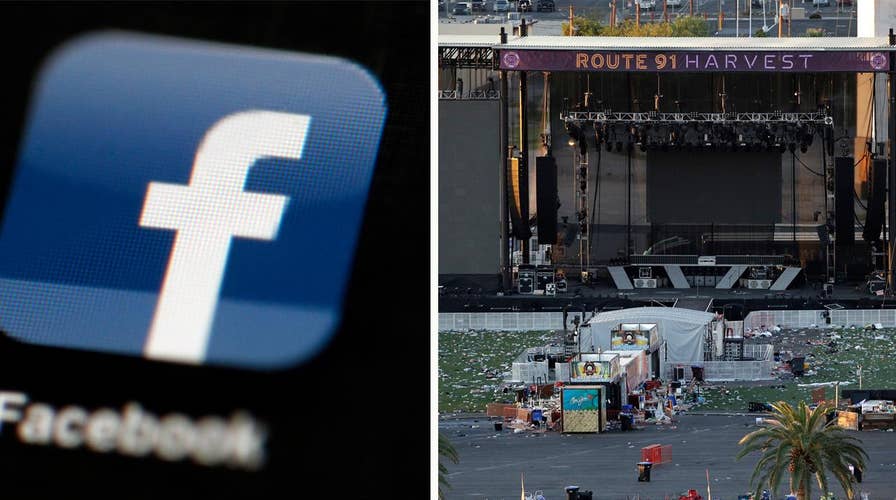Las Vegas shooting: Facebook, Google spread fake news
Big Tech Backlash: After agreeing to crack down on the spread of fake news on social media, Facebook and Google shared many false stories and hoaxes surrounding the Las Vegas massacre.
Fake news ads are reportedly popping up on fact-checking websites.
The New York Times reported that as recent as last week, these ads were found on sites like PolitiFact and Snopes.
The report said the ads took the reader to sites that looked like major media websites, like Vogue and People. The headlines read, for example, “Melania Trump is leaving the White House!”
The articles looks similar to a standard news site, but they transitioned to an ad. In one case, an anti-aging skin cream, the report said.
Nearly a year after Facebook and Google launched offensives against fake news, they’re still inadvertently promoting it — often at the worst possible times.
Online services designed to engross users aren’t so easily retooled to promote greater accuracy, it turns out. Especially with online trolls, pranksters and more malicious types scheming to evade new controls as they’re rolled out.
In the immediate aftermath of the Las Vegas shooting, Facebook’s “Crisis Response” page for the attack featured a false article misidentifying the gunman and claiming he was a “far left loon.” Google promoted a similarly erroneous item from the anonymous prankster site 4chan in its “Top Stories” results.
A day after the attack, a YouTube search on “Las Vegas shooting” yielded a conspiracy-theory video that claimed multiple shooters were involved in the attack as the fifth result. YouTube is owned by Google.
None of these stories were true. Police identified the sole shooter as Stephen Paddock, a Nevada man whose motive remains a mystery . The Oct. 1 attack on a music festival left 58 dead and hundreds wounded.
The companies quickly purged offending links and tweaked their algorithms to favor more authoritative sources. But their work is clearly incomplete — a different Las Vegas conspiracy video was the eighth result displayed by YouTube in a search Monday.
“As always, when we find deceptive ad practices on our platforms we move swiftly to take action, including suspending the advertiser account if appropriate,” Chi Hea Cho, a Google spokeswoman, told The Times in a statement. “In addition, we give publishers controls so they can block specific types of ads and advertisers.”
The Associated Press contributed to this report









































